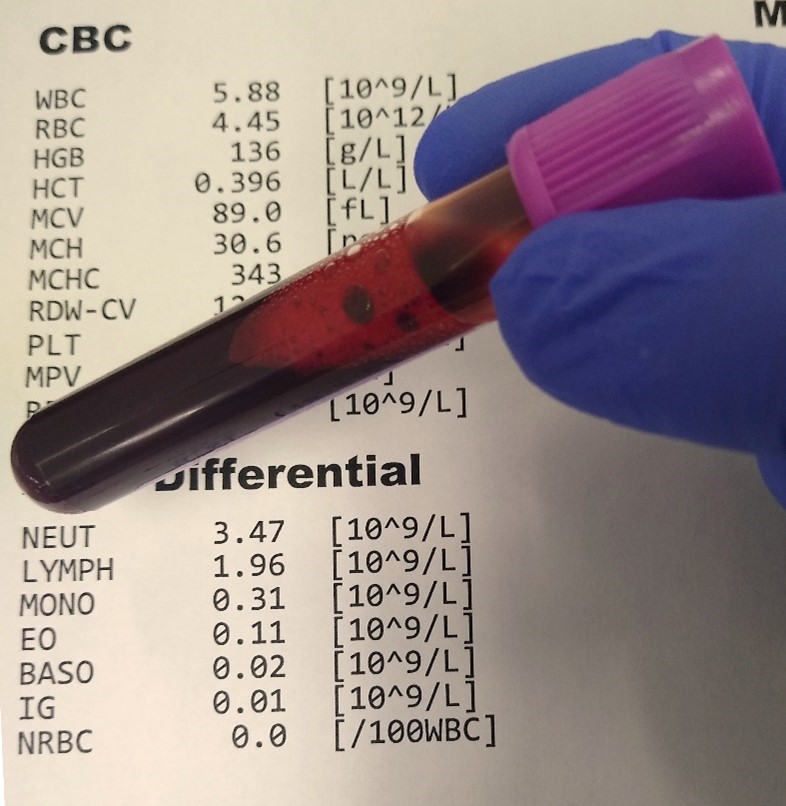More Questions
More Questions ( 14 Questions)
A nurse is caring for a client who has leukemia and is receiving cytarabine, an antimetabolite, as part of chemotherapy. Which of the following laboratory tests should the nurse monitor for adverse effects of this drug?
These are not the laboratory tests that the nurse should monitor for adverse effects of cytarabine, but rather of cisplatin, which is another chemotherapy drug that can cause kidney damage or failure. Cisplatin can accumulate in the kidney cells and cause oxidative stress and cell death. The nurse should monitor the serum creatinine and blood urea nitrogen levels, which are markers of kidney function that reflect the glomerular filtration rate (GFR). An increase in these levels indicates a decrease in GFR and a loss of kidney function. The nurse should report any abnormal results to the provider and provide fluids and electrolytes as ordered⁴.
These are not the laboratory tests that the nurse should monitor for adverse effects of cytarabine, but rather of amphotericin B, which is an antifungal drug that can cause electrolyte imbalance. Amphotericin B can affect the transport of sodium and potassium across cell membranes and cause renal tubular acidosis. The nurse should monitor the serum potassium and magnesium levels, which are important electrolytes for nerve and muscle function. A decrease in these levels can cause muscle weakness, cramps, arrhythmias, and seizures. The nurse should report any abnormal results to the provider and provide supplements as ordered .
This is the laboratory test that the nurse should monitor for adverse effects of cytarabine, which is an antimetabolite chemotherapy drug that works by slowing or stopping the growth of cancer cells. The main adverse effect of cytarabine is bone marrow suppression, which is the decrease in the production of blood cells, such as red blood cells, white blood cells, and platelets. This can cause anemia, increased risk of infection, and bleeding problems. The nurse should monitor the complete blood count and differential, which measure the number and type of blood cells in a sample of blood. The nurse should report any abnormal results to the provider and provide supportive care as ordered³.
These are not the laboratory tests that the nurse should monitor for adverse effects of cytarabine, but rather of methotrexate, which is another antimetabolite chemotherapy drug that can cause liver damage or failure. Methotrexate can interfere with the metabolism of folate and cause accumulation of toxic metabolites in the liver cells. The nurse should monitor the serum bilirubin and liver enzyme levels, which are markers of liver function that reflect the liver's ability to process bilirubin and other substances. An increase in these levels indicates liver injury or inflammation. The nurse should report any abnormal results to the provider and provide folinic acid as ordered .
Choice C reason:
This is the laboratory test that the nurse should monitor for adverse effects of cytarabine, which is an antimetabolite chemotherapy drug that works by slowing or stopping the growth of cancer cells. The main adverse effect of cytarabine is bone marrow suppression, which is the decrease in the production of blood cells, such as red blood cells, white blood cells, and platelets. This can cause anemia, increased risk of infection, and bleeding problems. The nurse should monitor the complete blood count and differential, which measure the number and type of blood cells in a sample of blood. The nurse should report any abnormal results to the provider and provide supportive care as ordered³.
Choice A reason:
These are not the laboratory tests that the nurse should monitor for adverse effects of cytarabine, but rather of cisplatin, which is another chemotherapy drug that can cause kidney damage or failure. Cisplatin can accumulate in the kidney cells and cause oxidative stress and cell death. The nurse should monitor the serum creatinine and blood urea nitrogen levels, which are markers of kidney function that reflect the glomerular filtration rate (GFR). An increase in these levels indicates a decrease in GFR and a loss of kidney function. The nurse should report any abnormal results to the provider and provide fluids and electrolytes as ordered⁴.
Choice B reason:
These are not the laboratory tests that the nurse should monitor for adverse effects of cytarabine, but rather of amphotericin B, which is an antifungal drug that can cause electrolyte imbalance. Amphotericin B can affect the transport of sodium and potassium across cell membranes and cause renal tubular acidosis. The nurse should monitor the serum potassium and magnesium levels, which are important electrolytes for nerve and muscle function. A decrease in these levels can cause muscle weakness, cramps, arrhythmias, and seizures. The nurse should report any abnormal results to the provider and provide supplements as ordered .
Choice D reason:
These are not the laboratory tests that the nurse should monitor for adverse effects of cytarabine, but rather of methotrexate, which is another antimetabolite chemotherapy drug that can cause liver damage or failure. Methotrexate can interfere with the metabolism of folate and cause accumulation of toxic metabolites in the liver cells. The nurse should monitor the serum bilirubin and liver enzyme levels, which are markers of liver function that reflect the liver's ability to process bilirubin and other substances. An increase in these levels indicates liver injury or inflammation. The nurse should report any abnormal results to the provider and provide folinic acid as ordered .

